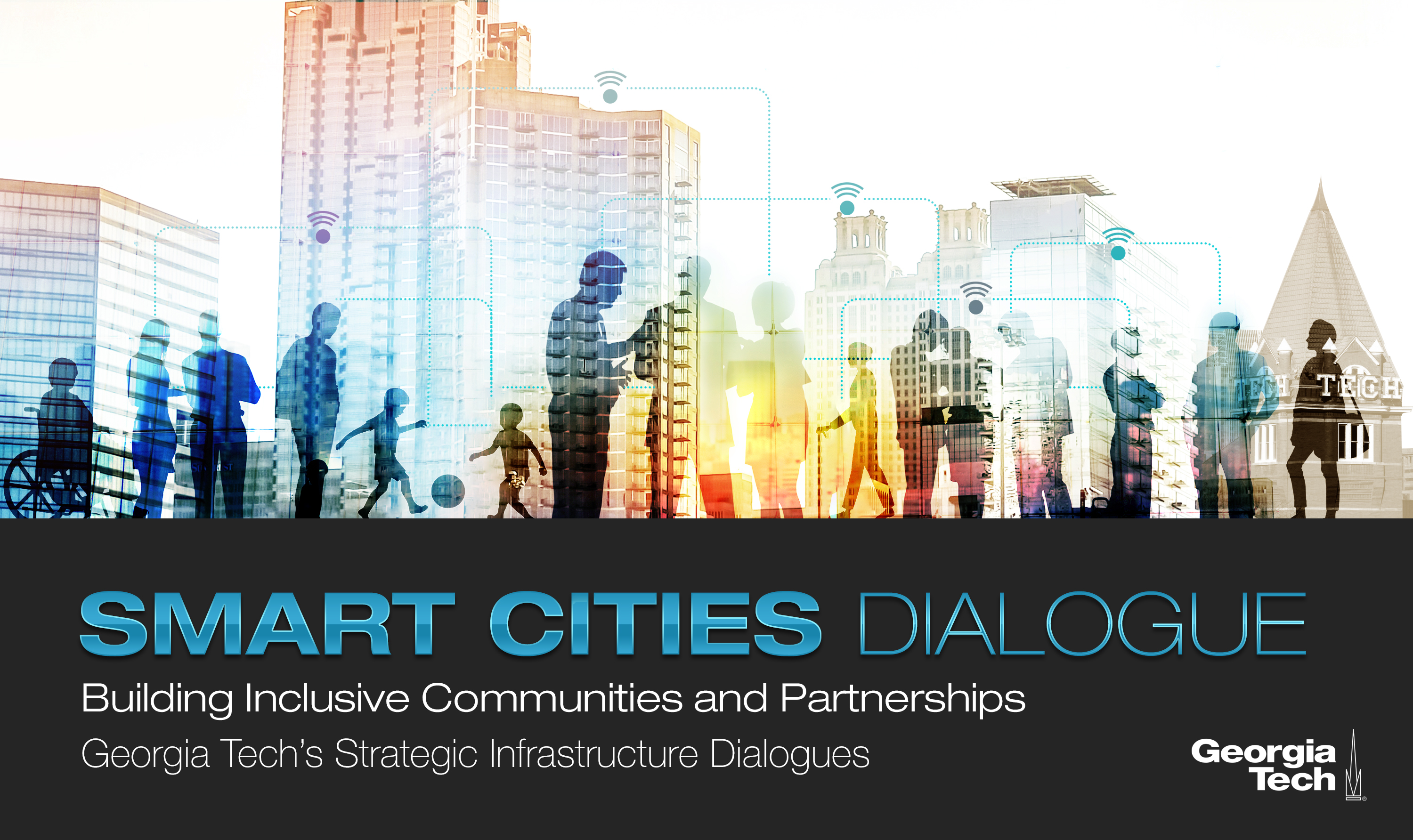
1. Inclusive Engagement
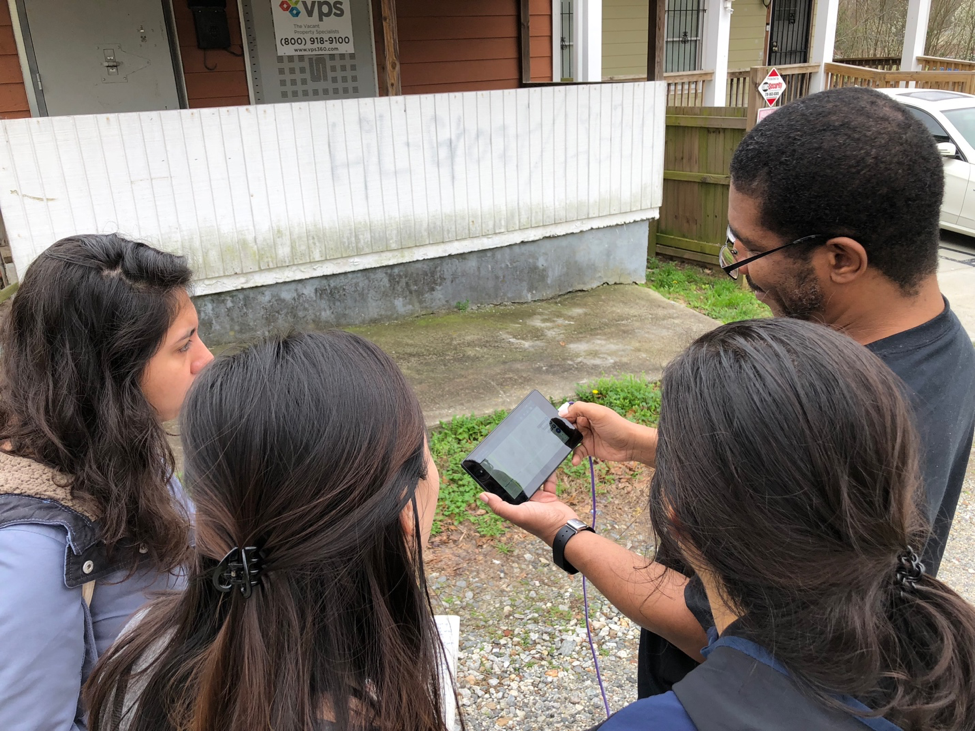
Proponents of smart cities claim that new, data-intensive technologies will improve the lives of all smart city residents and “unlock equity and prosperity.” Because smart city initiatives are often driven by the private sector or political posturing, realizing an equity impact requires intentional and inclusive engagement. We invite you to visit a set of civic data and design labs in Technology Square Research Building including the Public Design Workshop, the Participatory Publics Lab, and an installation of the Atlanta Map Room to explore how we practice inclusive engagement. We will present and discuss the work with community partners in a variety of projects including Sensing like a bike, the Atlanta Community Engagement Playbook, data science for affordable housing, RatWatch - an SMS systems for reporting rat sightings, the use of IoT in urban foraging, and participatory approaches to researching sensing environments. We will share our methods and lessons in inclusive engagement and hear from the group on how they go about engaging residents in smart city initiatives to co-produce a document of best practices.
2. Innovation District
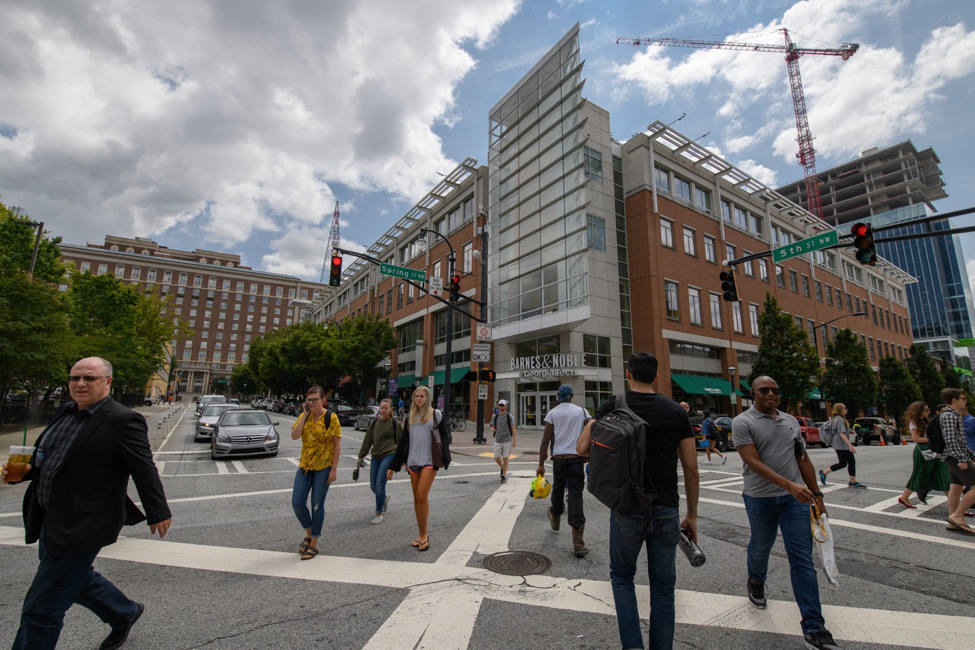
Take a walking tour of some of the highlights at the epicenter of high tech collaboration. Technology Square (Tech Square) is the main hub of innovation at Georgia Tech. It’s here that Georgia Tech’s collaborative partners tap into the expertise of students, faculty, and researchers to transfer ideas and technology from labs to the marketplace. In and around Tech Square, there are nearly 30 corporate innovation, design, development, and technology centers representing companies such as Delta Air Lines, Honeywell, UCB, AT&T, Siemens, Stanley Black and Decker, Home Depot, Chick-fil-A, NCR, and Anthem, as well as the state of Georgia’s start-up incubator, ATDC. Tech Square is also home to the brand-new Coda building, a nearly 750,000 square-foot mixed-use innovation hub of advanced computing designed to create new opportunities in interdisciplinary research, commercialization, and sustainability. During this site visit and tour, you will learn about top ranking startup incubation and accelerator programs, and the spaces they have created to attract entrepreneurs, startups and corporate labs, as well as discuss the elements that create communities of innovation here in Midtown.
3. Resilient Space
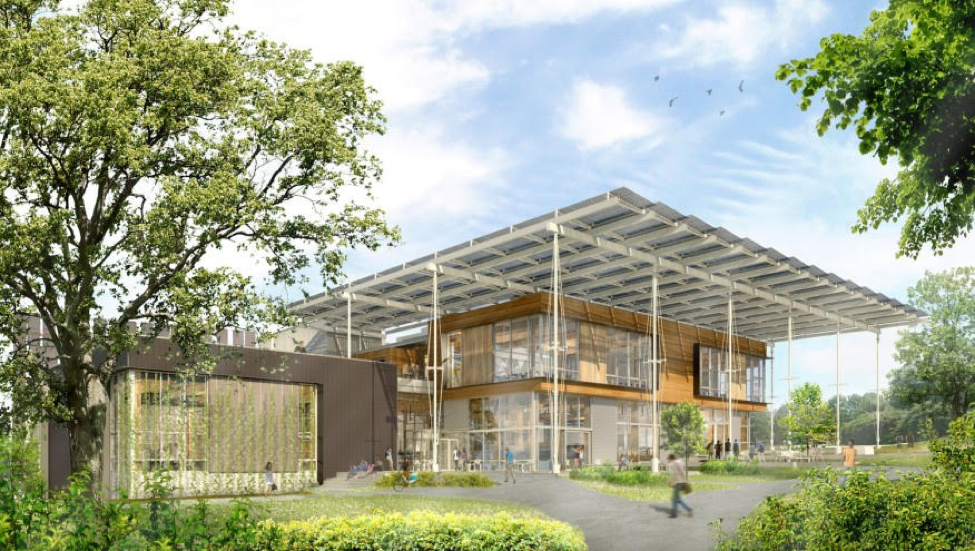
“Resilient Innovation” tour of Georgia Tech Performance Landscape and The Kendeda Building for Innovative Sustainable Design (KBISD). This is a 2-mile walking tour of Georgia Tech’s Performance Landscape and the KBISD, both of which achieve resilience by joining technology, design, and ecology. The Performance Landscape integrates landform, hydrology, soils, and biological communities. Trees shape microclimate and engage the hydrologic cycle, where soils drink in storm water instead of discharging it into sewers; where biomass sequesters carbon, improves air quality, and increases biodiversity. The Performance Landscape is also a cultural entity that integrates open space, buildings, and circulation, as well as human behavior and experience. Georgia Tech seeks to construct and operate the KBISD to the Living Building Challenge (LBC) certification standard, the world’s most rigorous sustainable design and performance standard for buildings. To meet LBC requirements, the KBISD will abide by strict construction guidelines as well as operating procedures. For example, the building must produce more energy than it uses on site through renewable sources, as well as collect, treat, and reuse more water than it needs on an annual basis. This is a rare opportunity to visit the KBISD during the final months of construction. For this tour, we recommend bringing a bottle for water and wearing close-toed shoes for the KBISD tour.
4. The Future of Robotics
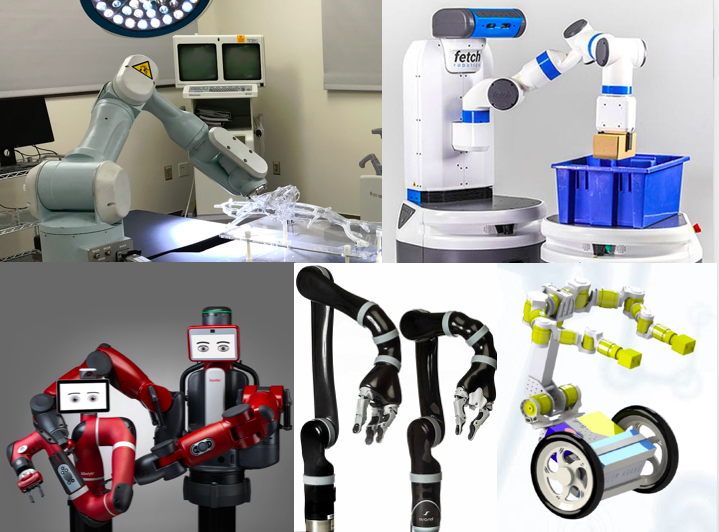
See some of the robots being used for cutting edge research in the Institute for Robotics and Intelligent Machines. This tour will visit several labs housed in the College of Computing Building near the center of the Georgia Tech campus. Research in these labs focuses on human-robot interaction, medical applications, and mobile manipulation. Robotic platforms on display will include the Hubo humanoid robot, a wheeled-inverted-pendulum robot with a bimanual torso, mobile manipulators (robot arms mounted to mobile platforms), and several other research robots. During the tour, you will learn about current research efforts, future applications, and possible impact of robotics technology for societal needs.
5. Digital Twin
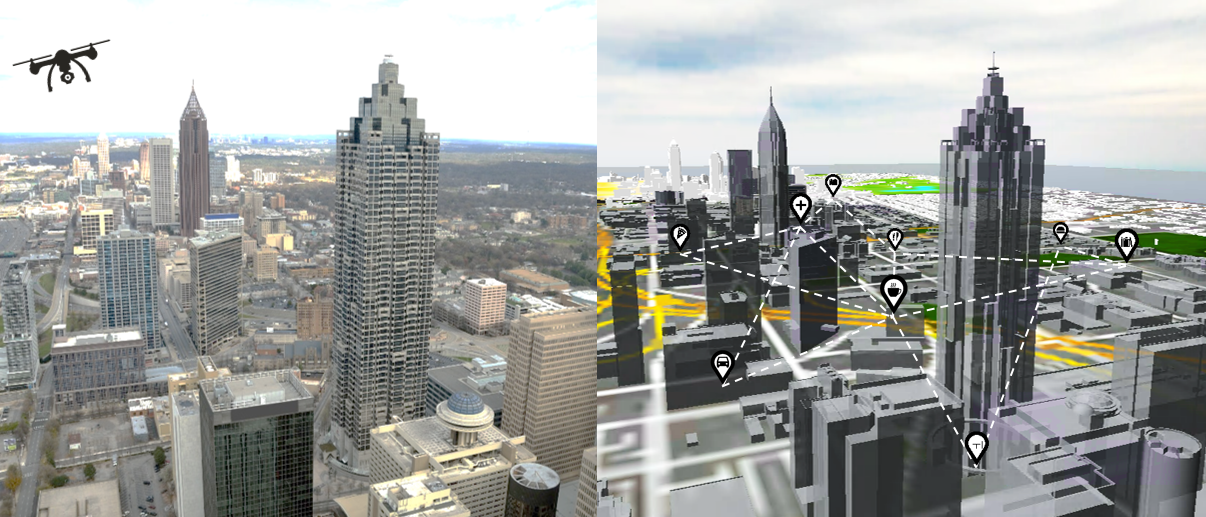
The Smart City Digital Twin concept is a rapidly emerging paradigm that harnesses and integrates real time data streams in cities into a digital replica of the city. Smart City Digital Twins go beyond streaming data to simulate “what if” scenarios that can provide predictions of the impact of various infrastructure changes on sustainability, resilience, and livability in cities. We invite you to visit the Georgia Tech campus to explore the work of several labs that are applying Smart City Digital Twin thinking to examine urban traffic flows, energy consumption, built environment morphology and ecology, and population sentiment. You will experience a variety of platforms that enable visualization of data streams—from augmented reality and aerial drones, to social media and virtual reality. We will discuss the lessons learned from these efforts and dialogue with participants about the potential impact of Smart City Digital Twins on urban operations and management.